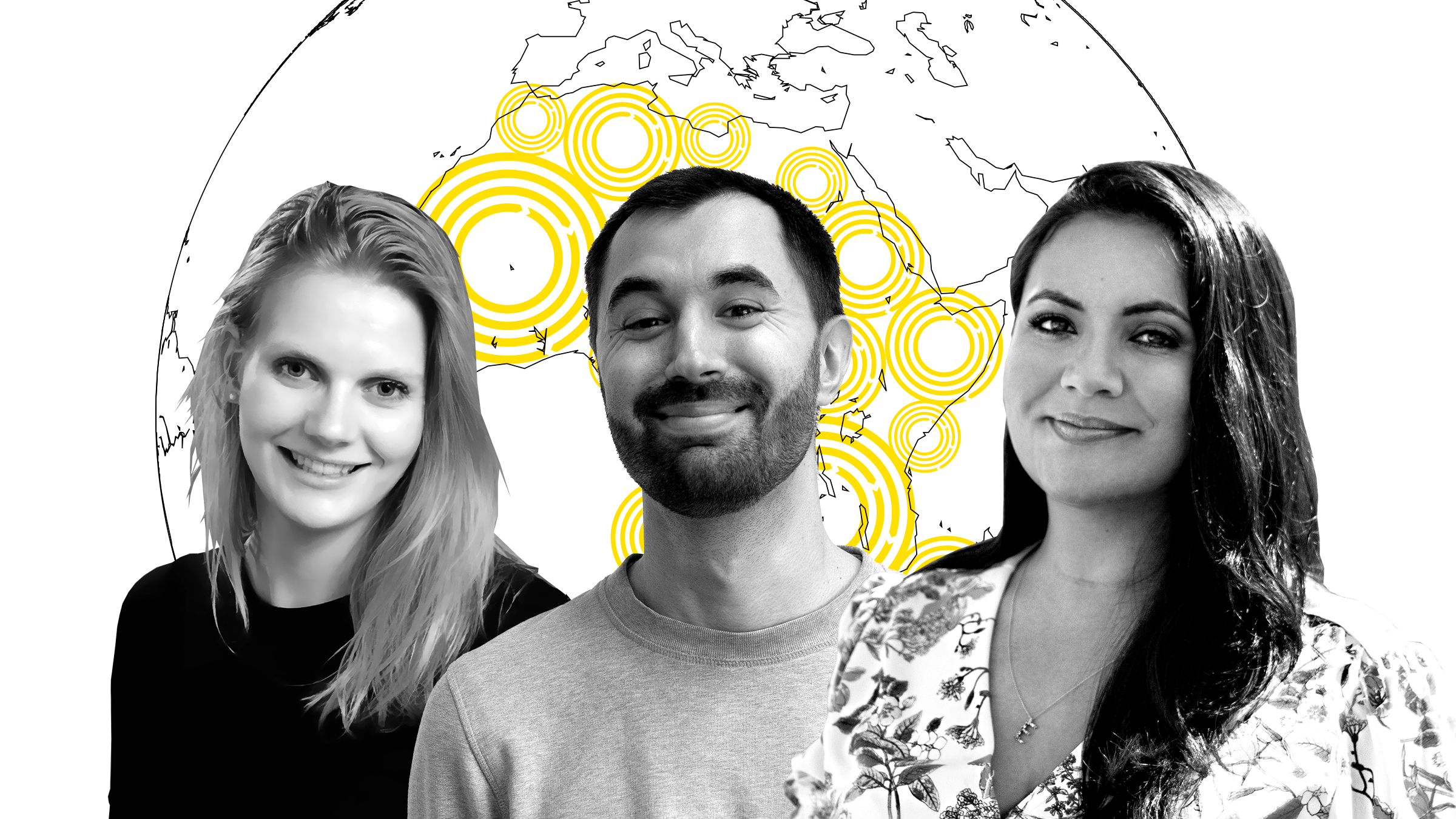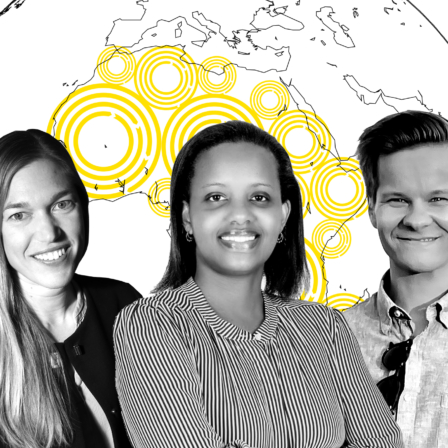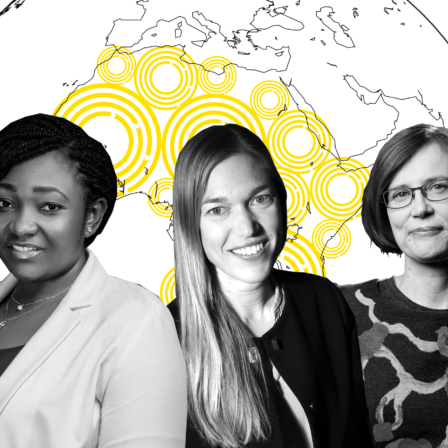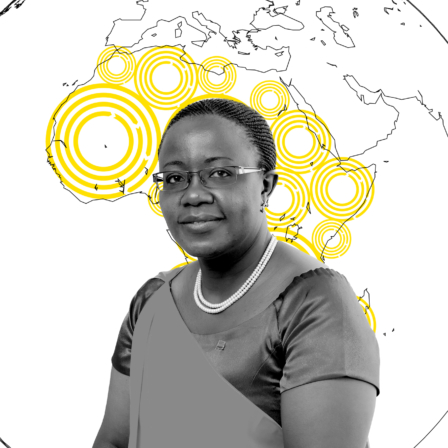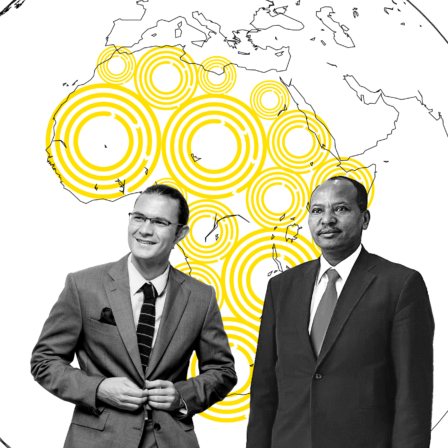Nelson Mandela once said that “the youth of today are the leaders of tomorrow”. Africa has the youngest population in the world: around 40% of Africa’s population is aged 15 years or younger and there are almost a billion people under the age of 35. Innovative visions and entrepreneurial spirit are common among the youth, which offers Africa an enormous resource to build the future with new perspectives and ideas. However, the youth are not only the future but also the present, so today we need to strengthen societal structures that enable innovations and encourage young generations to build sustainable businesses. It is important to assess what kind of support young people need to be able to build a more sustainable tomorrow – for us all.
Economic development in Africa has been significant during the last few years and growth is likely to accelerate in the future. In contrast to countries in the Global North, African economies haven’t locked themselves into a linear economy, so they have better opportunities to leapfrog to a circular economy. Circular economy-based business models and digital tools are guiding the way to a more resource-wise and carbon-neutral society, and many young people in Africa are ready to adopt these trends. Young innovators create sustainable jobs, which is also important in terms of peace, security and social stability. Yet, structural challenges can create bottlenecks for such aspirations.
Africa is the fastest-growing continent in terms of population. Therefore, it is important to build the capacity of young people to support green growth and the circular economy. Education is a key and a powerful tool to achieve a transition to a circular economy in Africa.
Education will build circular economy skills for new jobs
During the past twenty years, access to education among African youth has increased remarkably. According to UNICEF’s (2021) report, between 2000 and 2019 the share of children not attending primary school fell from 35% to 17%. During that same time the proportion of lower secondary-aged children not attending school fell from 43% to 33%, while upper secondary non-attendance fell from 63% to 53%.
However, educational mismatches are costly for the African labour markets: those who graduate often lack the skills required for the jobs that are available. Transition to a circular economy also requires certain skills that are quite new to conventional teaching strategies – and not just in Africa, but also in many economies in the Global North. In a circular economy, we need the youth to have skills that allow them to challenge the status quo and encourage transformations. So far, only a few universities in Africa have integrated circular economy in their teaching and research programmes, but we are seeing some progress.
The youth of today are the leaders of tomorrow.
Nelson Mandela
Many circular economy-based practices and business models are designed to work in countries in which the economic activities are mainly formal and generate tax revenue. These countries often have institutions that can support the transition. The majority of these models are not applicable to African countries as such.
Currently, around 80% of the workforce engages in informal labour, and this is especially common among youth. Informal workers are often living on a low and irregular income, with low access to social protections. Informality limits access to the financing and education which is crucial for the circular economy-based SMEs (small and medium sized enterprises) to upscale and to provide green jobs. Supportive policies are the key enablers for integrating informal workers and for creating a favourable environment for new businesses.
Interested? Read more in our article series.
Solutions need to be local
Currently most of the research and knowledge in the circular economy is being developed in the Global North. This implies that much of this knowledge is neither applicable nor suitable for African countries and communities. Higher education institutes in Africa can fill in this gap by integrating the circular economy more in their current teaching and research.
To achieve the circular economy transition, there is a compelling need to transform the whole education system and approach. Traditional teaching methods need to make space for strategies that can train and coach young Africans to become change agents. That entails that schools and universities commit to producing critical thinkers and doers. Instead of focusing on learning book knowledge, students should be given the tools to challenge the current systems and theories, in order to empower the circular economy transformation of the continent. This requires innovation in the curricula as well as a stronger focus on training and education in both practical technical skills and soft skills.
We need local people to design grass-roots circular solutions to address systemic problems and achieve our environmental and development goals. Universities are important in identifying the knowledge gaps, creating learning products and applied research projects to solve these problems. Additionally, degrees can be designed to offer more experiential learning by having students do internships in their local communities through designing the solutions needed in everyday life. This can be achieved by training students in research skills and generating circular economy knowledge in their communities, based on indigenous customs and traditions that are often already circular.
“Being a circular economy research intern at ALU has been a wonderful experience and an opportunity for me to learn. I would recommend it to any student interested in conservation and the circular economy‚ and is looking to get some real field experience. I was able to implement what I had learned in the research classroom during my internship‚ as well as assist our supervisor in the data collection process. This has widened my understanding of circular economy principles, how they are being applied in the agriculture sector, as well as how circular principles can be used to ensure food security in East Africa.”
Deborah Mukundwa ALU research intern
Universities can also become knowledge partners to governments and industries by generating knowledge about the circular economy through research and pilot projects in Africa. These can then be used to develop national and regional policies. In practice, this can be achieved through partnerships for developing national circular economy road maps and building capacity of the public and private sectors with local universities.
Global collaboration is important
To create mutually beneficial partnerships that accelerate the circular economy transition in African countries, it is important to understand the country-specific local context. Solutions that work in the Global North often cannot be transferred as such to Global South. Specific challenges, such as lack of funding and regulatory frameworks, need to be approached in a systematic manner. For this, global collaboration is key. The youth’s capacity to create innovative circular economy solutions can also generate green employment opportunities.
Promoting relevant skills through educational co-operation provides many opportunities for mutual learning and knowledge sharing. Circularity and resource-smart systems are natural solutions in some parts of Africa, and the tendency for linear thinking is not as strongly embedded as is often the case in societies in the Global North.
One good example of international collaboration is the Finnish HEI ICI (Higher Education Institutions Institutional Cooperation Instrument) project SUSIE, a collaboration project between Finnish and Tanzanian universities. One part of this project is researching the circular economy with Tanzanian University leaders, teachers, students and stakeholders.
“For students, this project has provided opportunities to work together and build mutual understanding of recycling ecosystems in Tanzania and Finland. The collaboration has provided Finnish students an opportunity to see the challenges of Tanzanian society in terms of recycling. Tanzanian students emphasised that meetings and presentations with Finnish students were significant in terms of overall understanding of the circular economy and recycling. However, the students noticed that by working together and sharing information, they improved mutual understanding and found that they can apply new knowledge and skills in both studies and working life,” says Ritva Hyttinen, SUSIE Project Leader.
Finally, entrepreneurs’ and universities’ access to funding is crucial to enhance young people’s opportunities. SMEs need financial support to scale up their innovative circular economy solutions. Universities need funding to establish more accessible offline and online circular economy courses, research projects to generate knowledge for Africa, circular economy student ventures, projects and activities to be a driver for change.
